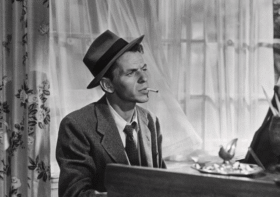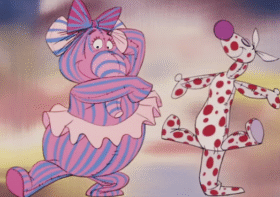How To Dress For An Interview

There is no shortage of articles on the internet about how to dress for an interview.
And none of them are “bad”. But I feel like they all miss the point.
Most of the advice in those articles seems like is geared towards total morons. They talk about how, for corporate interviews, you should make sure to dress up!
You don’t say! Tell me more!
But if you’re reading this site (thank you!) then you have more than a basic handle on getting dressed. You don’t need to be told to wear a suit to a corporate interview. You know that already.
But because you know a bit about menswear, you might start to get a little in your own head about the details. After all, there are articles out there that give advice that’s difficult to follow on a practical level, like “don’t dress better than your interviewer” or “dress one step above the office dress code”.
There is one big problem with those pieces of advice: You don’t know how anyone else in the company dresses! You have no idea how your interviewer is going to dress. You have no idea what people wear to that office every day. Therefore, you can’t possibly expect to be able to follow that advice when you have no advanced knowledge of the company or the people with whom you’ll be meeting.
You might also see advice telling you to dress in a certain way if the interview is with a certain kind of company. Like, if you’re interviewing at a law firm or financial institution, then wear a suit but if you’re interviewing for a more “creative” role, then it’s ok to wear something more relaxed like a sweater and “nice” jeans.
This advice is also bunk.
Don’t try to “stick it”. Don’t try to wear the “perfect” thing. Keep in mind that when you’re called in for an interview, the company already feels like you’re pretty qualified. They have read your resume and your bland cover letter. They’ve looked you up on LinkedIn. They already know that if they dropped you into the position tomorrow you’d probably do just fine.
Part of the interview is for them to figure out what your personality is and to determine whom they like the best and whom they would like to work with, but mostly, they are just trying to make sure you’re not a crazy person!
One of the ways you can assure them that you are NOT a crazy person is displaying normal judgement and decision-making skills. The first demonstration of these skills is what you decide to wear to the interview.
This is a very basic test. Do you know how to dress for a given scenario, like an interview? If you don’t then the company will not be confident that you have the basic life-skills to adequately perform the role in question.
Show your interviewers you’re indeed NOT a crazy person and can dress yourself like a proper adult.
For ANY interview for an office-based job, wear a dark suit, white (or light blue) shirt, and a dark, conservative tie (ideally in either navy blue or burgundy).
The interviewers aren’t going to be impressed if you managed to dress “one step above the office dress code”. Most offices these days are fine with people wearing jeans, for goodness sake. And honestly, most people wouldn’t be able to identify what “one step above the office dress code” even looks like! We would be able to, because we care about and think about menswear. But regular people don’t care enough to notice that stuff.
No, you want to demonstrate that you are enough of a grown-up that you know how to dress for an interview, regardless of “company culture”. The company isn’t looking for you to magically match the company culture. They are looking for you to take this occasion seriously and dress accordingly.
Think about it. If you roll into the interview in a sweater, chinos, and boots, you will never be given the opportunity to explain “Oh, I dressed like this because the recruiter said the company had a casual dress code, so I’m trying to fit with the culture!” Everyone will just think that you didn’t take it seriously.
Interviewers understand that you don’t really know the company yet. They’re trying to see if you have the basic people skills to know how to get dressed for an important event.
Now, let’s get back to the “details” I mentioned earlier. If you’re a style-minded gent (which you must be if you’re reading this site) then you’re probably wondering if certain things are “ok” for an interview, like a pocket square or cufflinks.
Wear what makes you feel handsome and confident, but, in my opinion, an interview is NOT the place you should be flexing your sartorial muscles. Don’t wear a bow tie. Don’t wear “fun” socks. Don’t wear a double-breasted jacket.
Treat it the way you would a court appearance. Dress yourself well, but leave the personal flourishes for another day.
That being said, yes you CAN wear a pocket square to an interview, but do a white linen. Yes, you can wear suspenders, but keep your jacket on so you don’t expose them. Yes, you can wear a patterned tie, but make sure the pattern is small. I would even go far as to say that you can wear cufflinks, but make sure they’re small and tasteful.
If dressing well is your thing, it’s ok to dress well to your interview. That’s who you are and that’s a wonderful thing. You want to be comfortable in your interview and you want to look good. If I removed my white, linen pocket square from my suit jacket because I felt my interviewer wouldn’t like it, I wouldn’t feel as confident because I would feel like I didn’t look as good as possible. After all, if they hire me, they’re going to get a guy who wears a pocket square, dammit!
Just don’t wear something that the interviewers are going to talk about at the water cooler later.
Dressing for an interview is all about elegance and understatement.
I once interviewed for a marketing position with Lands’ End. They flew me out to Wisconsin and I spent the day interviewing with a half-dozen members of senior leadership. It was a really positive experience. Everyone was gracious and kind, and treated me like a welcomed guest.
One of my interviewers noted how “polished” I looked. I wore a dark navy suit, a white shirt with spread collar, a navy tie with a small dot pattern (which was actually from Lands’ End but I’m not sure anyone noticed), a white pocket square, and black shoes.
And that’s basically the uniform you should shoot for when you do a corporate interview.
They’re not looking for you to magically know exactly what the company dress code is and automatically align with their culture. They’re looking to see if you know the unspoken “rules” of presenting yourself as an adult.
In an uncertain situation where you’re hoping to make a good impression, an intelligent adult man puts on a dark suit and conservative tie. If you can’t do that, then they’re going to think you lack the basic decision-making skills necessary to do the job.
So, those other interview articles aren’t necessarily “wrong”, they just miss the whole bit that dressing for an interview is a test of fundamental people skills. It’s like how people would think you were missing part of your brain if you showed up to a funeral in your Nantucket reds and patchwork madras jacket. Yes, as a “menswear” guy it could be argued that the location and time of year meant the outfit was appropriate, but no sane person would agree that that’s something you should wear to that event.
It’s the same with an interview. Don’t wear seersucker. Don’t wear tweed. Don’t wear corduroy. I know you love menswear and, yes, you probably look great. But understand that an interview is a test of ALL your people and professional skills, one of which is knowing how to present yourself.
I once saw a guy show up to an interview in very fashionable streetwear. He didn’t get the job, but I’m sure he got a lot of likes on Instagram.
Just remember that you shouldn’t erase parts of your personality trying to guess what the interviewer is going to like. You can’t control that. Wear your pocket square, suspenders, and cufflinks if they make you happy, just choose understated versions of all of those things (which I know you know how to do). If you like them and they’re part of your well-honed personal style, you’re going to look at-ease and confident in them. Wearing things like cufflinks to an interview only becomes a problem when it comes off as costume-y, like the person is cosplaying Gordon Gekko.
It’s ok for your interviewers to think “This guy dresses well”. There’s nothing wrong with that. They’re not going to think less of you for it. They’ll just realize that’s part of who you are.
So, lean into your sense of style, if that’s how you feel you present yourself best. Don’t worry too much about “dressing too well” (as long as you don’t go overboard).
Remember, interviews are heightened emotional circumstances so we always try to be “perfect” for them. And for people who care about clothes (like you and me), that drive for “perfection” can sometimes mean an unnecessary focus on our attire.
But it’s not that complicated.
Treat an interview the way you would a meeting with an important client. Don’t let the nerves of the interview keep you from dressing in a way that makes you feel confident.
Make sure to keep in mind that if it’s a regular corporate interview, the winning formula is dark suit + light shirt + dark tie. I always wear black shoes, but if you only have brown shoes that’s ok too. The interviewers are NOT into menswear the way we are. Afterwards, they aren’t going to be like, “OMG, Becky… did you see that that guy wore open-laced shoes with his suit? Ugh?! Call security.”
No. The interviewers aren’t thinking too deeply about what you’re wearing beyond “Did this guy wear a suit”. They simply need to check off the little box that you’re enough of a functioning adult to know to put on a proper suit for an interview.
Honestly, getting dressed for the interview is the easiest part of the interview!
Because you’re a style-minded gent, realize that what you wear to an interview is one of the simplest sartorial decisions you’re ever going to make. You don’t need to wow or impress anyone with what you’re wearing. You don’t need to take into consideration the weather or the time of day or year.
So, allot yourself about five minutes to choose what you’re going to wear to the interview. Spend the rest of your precious time actually prepping your responses to common interview questions!



